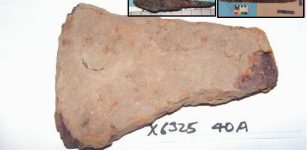On This Day In History: Julian ‘The Apostate’ Died During The Retreat From The Sassanian Empire – On June 26, 363
AncientPages.com - On June 26, 363, Roman Emperor Julian (also known as Julian the Apostate) died near Maranga, Mesopotamia (present-day Iraq), aged 31, during a battle against the Sassanid army.
Julian the Apostate was a prominent philosopher and author in Greek; he was also Roman Emperor from 361 to 363.
Julian the Apostate presiding at a conference of sectarians, by Edward Armitage, 1875. Image credit: Edward Armitage RA (1817 – 1896) - Public Domain
A few months earlier, Julian began his campaign against the Sassanid Empire; his goal was to take back the Roman cities conquered by the Sassanids under the rule of Constantius II, which his cousin had failed to take back.
He moved forward from the city of Antioch with a strong military force of about 90,000 men and continued through the valley of the river Euphrates towards Mesopotamia.
In May, his soldiers clashed with the army of the Persian shah in the famous Battle of Ctesiphon, the capital city of the Parthian and Sasanian Empires.
Ctesiphon was one of the great cities of late ancient Mesopotamia (today, present-day Baghdad).
Emperor Julian defeated the Persians at Ctesiphon, but he could not take the Persian capital.
He decided to retreat his weakened troops back to the Roman borders.
During the retreat, on June 26, 363, Julian was hit by a spear. His wound was not severe, and he was treated by his physician, Oribasius of Pergamum, who attempted to treat the injury. But unfortunately, Julian died a few days later.
According to his last wish, Emperor Julian was buried in Tarsus in what is now Turkey. Jovian, one of Julian’s generals in the Persian campaign, was declared the new emperor.
AncientPages.com





















